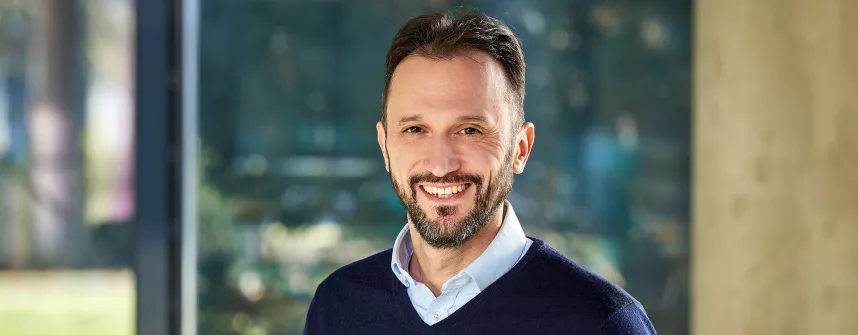Wind energy from a 3D printer: Pilot project for energy self-sufficient schools
"Wind.EnergyAutonomous Schools in the Metropolitan Region Northwest " - this is the name of a new research project led by Dr. Yilmaz Uygun, Professor at Constructor University in Bremen. The project runs in collaboration with the County of Friesland (Germany) and ist funded by the Metropolitan Region Northwest. The aim is to further develop and validate a proprietary vertical-axis wind turbine that will be produced by using the world's largest industrial delta-type 3D printer. The turbines are intended to serve as a sustainable energy source for schools in particular.
A pilot project for energy self-sufficient schools is now starting in the County of Friesland, Northern Germany, in which school buildings will be equipped with vertical-axis wind turbines. This will be facilitated by a research group led by Professor Uygun from Constructor University. This group is studying and developing vertical wind turbines, which will be produced in its own 3D printer on the campus in Bremen and will be tested in practice within this project. This creates a fully functional test field that provides important data and experience for technology transfer.
In the current energy crisis and the accompanying energy-saving measures, it is becoming increasingly difficult for schools to cover their high energy consumption with renewable energy. This is also due to the fact that they have to meet high requirements - for example, no horizontal wind turbines may be used - and solar panels are often not efficient enough for the high energy demand.
"With this project, we are breaking new ground in urban energy generation on this scale for the first time, with the aim of making public properties energy self-sufficient. After successful testing at the Hohenkirchen Secondary School, the project is to be scaled up easily and quickly so as to contribute to the energy transition," said Prof. Uygun.
The funding of the Metropolitan Region Northwest exclusively considers project ideas around the topics of resource efficiency, resource protection and energy transformation. In addition to Professor Uygun's project, two other campaigns have been awarded funding from the support fund of the states of Bremen and Lower Saxony. One identifies potential for saving drinking water, whereas the other one explores ways to recycle residual and commercial waste.
Further information:
www.metropolregion-nordwest.de
Questions answered by:
Dr. Yilmaz Uygun | Professor of Logistics Engineering, Technologies and Processes
yuygun@constructor.university | Tel.: +49 421 200-3478
About Constructor University:
An international community, vibrant and diverse. Offering academic excellence, ensuring the highest standards in research and teaching. Empowering students to solve the world's pressing challenges through knowledge and science: Constructor University is a top-ranked, English-speaking, private university. Founded in 2001, it provides a wide range of 25+ academic programs and PhD. The Constructor ecosystem comprises the University, located in Bremen, Germany, and an institute in Schaffhausen, Switzerland.
Over 1.800 students from more than 110 nations on campus benefit from a unique interdisciplinary, foundational theoretical and practical education. Enriched with a buzzing entrepreneurial culture that prepares young professionals to thrive in the job market. With 6.000+ alumni worldwide, our community keeps growing – with our highest cohort ever registered in 2022.
The research-centric faculty projects are funded by the German Research Foundation and the European Union's Framework Program for Research and Innovation as well as by globally leading companies.
The Constructor ecosystem benefits from partnerships with high-ranked universities such as Carnegie Mellon, the University of Geneva or the National University of Singapore School of Computing, and technology companies such as Anisoprint, JetBrains and ChemDiv.
Constructor is a global institution dedicated to addressing the main challenges of the world through science, education, and technology. Apart from the University in Bremen, the ecosystem comprises an Institute in Schaffhausen (Switzerland) and several for-profit entities that provide technology infrastructures and solutions, life-long education programs, consulting services, and funding.
